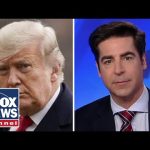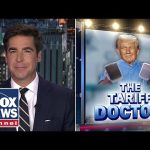Kirill Dmitriev, a key figure in Russia’s economic diplomacy and head of its sovereign wealth fund, faced sharp questions during his rare U.S. media appearance on The Record with Greta Van Susteren. The interview focused on three critical issues: American hostages in Russia, the Ukraine conflict, and efforts to rebuild U.S.-Russia relations. Here’s what emerged from the discussion:
Dmitriev defended Russia’s prisoner-exchange efforts, citing the February 2025 release of , an American teacher detained since 2021 on drug charges. He credited Saudi Crown Prince Mohammed Bin Salman for mediating the deal and highlighted his own role in past swaps, including the 2019 release of U.S. investor Michael Calvey. While Dmitriev framed these actions as goodwill gestures, critics argue they reflect Russia’s tactic of leveraging foreign detainees for political concessions.
On Ukraine, Dmitriev echoed President Putin’s stance that negotiations must account for Russia’s “security interests,” sidestepping direct criticism of Moscow’s military actions. He confirmed his recent meetings with Trump administration officials—the first high-level Russian visit to Washington since 2022—calling them a “difficult but necessary step” to reduce tensions. President Trump has tied progress on Ukraine to potential oil tariffs, warning of punitive measures if Russia refuses a ceasefire.
Despite Fogel’s release, Dmitriev faced pressure over remaining U.S. detainees, including , arrested in 2024 for allegedly funding a Ukrainian charity. When pressed, he deferred to “ongoing diplomatic channels,” avoiding commitments to specific timelines or terms.
Dmitriev emphasized restoring U.S.-Russian business relations, particularly through the Russian Direct Investment Fund (RDIF). Critics, including opposition leader Vladimir Kara-Murza, accuse the RDIF of being a conduit for corruption and argue that economic engagement whitewashes Russia’s human rights record. Dmitriev dismissed these claims, stating the fund operates transparently and benefits both nations.
The interview underscored the Trump administration’s pragmatic approach: prioritizing hostage returns and ceasefire talks while facing scrutiny over concessions to Moscow. With Dmitriev declaring “dialogue matters,” the stage is set for further negotiations—but lingering distrust and unresolved cases ensure rocky terrain ahead.




